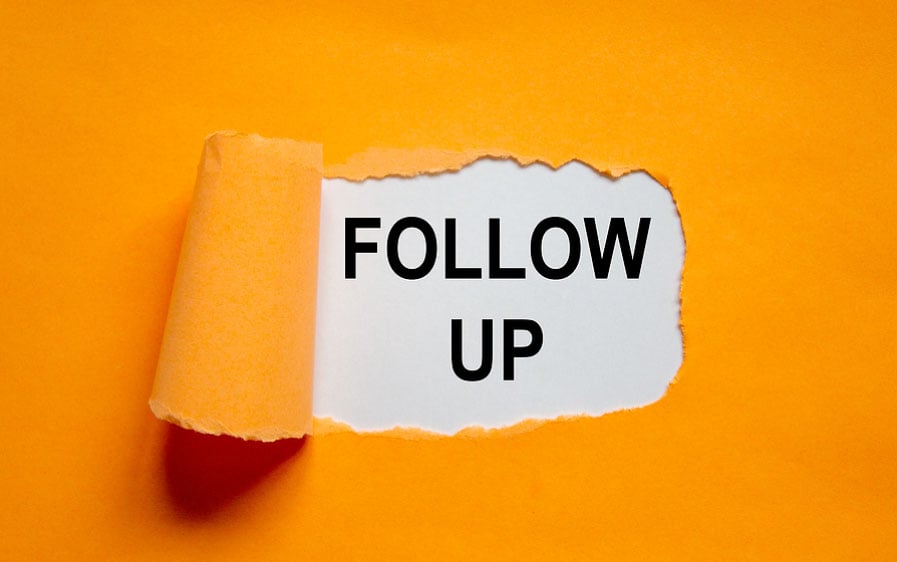Written by Sean McPheat | 

Are you ready to revolutionise your approach to preparing for a sales call?
Perfect preparation is not just about ticking boxes, it’s the foundation of every successful sales interaction.
In this blog, we’ll unfold eight indispensable tips that promise to elevate your preparation from routine to remarkable.
Centring on detailed research and effective Sales Training, we’ll navigate you through improving your strategies to not just meet but go beyond your prospects’ expectations.

Let’s begin with some general information everyone should understand regarding sales calls.
A sales call is a conversation between a seller (you) and a buyer (also known as a lead or prospect).
Despite the name, sales calls don’t have to be phone calls.
The conversation can also take place via email, video, social media messaging, etc.
When you make a sales call, it will either be with a warm or cold lead.
A warm lead is someone who has already shown an interest in your product or service. They may have reached out to you, or you may have talked to them previously.
Because the lead is already “warmed up,” the conversation usually requires a little less work and persuasion on your end.
Conversely, a cold lead is someone who, up until now, has yet to show an interest in your product or service. Because these leads haven’t been warmed up, they need more persuasion from you.
Whether you’re speaking to a warm or cold lead, it’s critical that you prepare for your sales calls. Taking the time to prepare can provide numerous benefits, including the following:
1. Increased Confidence
If you go in with an idea of a standard sales call structure and know what you want to say to a prospective customer, it’s easier to feel confident in your abilities as a salesperson.
This increased confidence is especially valuable when you’re new to sales. It’s common to feel intimidated when reaching out to prospects, but taking some time to prepare beforehand can help you trust in yourself and put your best foot forward during the call.
2. Better Communication
Some people are blessed with the gift of gab and have no trouble knowing what to say when they talk to new people. Others aren’t so lucky.
If you fall into the second group, preparing for your calls can help you be a better communicator.
If you have a script to work from and know the essential points to cover, you’ll be able to get the correct message across to your prospects – which increases the likelihood that they’ll respond well to your message.
For tips on how to be a better communicator, check out our article: 5 Ways To Ensure Great Sales Communications.
3. Increased Adaptability
An important part of preparing for a sales call is anticipating people’s responses and coming up with appropriate responses.
When you know how you’ll respond to objections, questions, concerns, etc., it’s easier to roll with the punches throughout the call and avoid freezing when someone says something you weren’t expecting.
4. Avoid Wasting Time
Time is your most valuable asset – and it’s also the most valuable asset of your prospective customers/clients.
By preparing for sales calls in advance, you’re setting yourself up for more efficient calls. That means you’re less likely to waste your time and your prospects’ time.
Leads will generally think more positively about you and your organisation if you get straight to the point and show respect for their time. That might even be the thing that encourages them to take you up on your offer.

Now that you understand the importance of preparing for a sales call, it’s time to go over the steps you must take to prepare effectively.
Here are some essential practices that can help you make a great impression and close more deals:
The first step is to consider the particular individual you’re going to be calling and figure out why they’re on your list.
Could it be they have bought from you before?
Are they a new business in your area?
Have they branched out into new markets?
Has a new person joined them and needs help in finding new products?
Work out what made this prospect be on your cold-calling list in the first place. When you know the answer to this question, it’s easier to tailor your messages to them and their specific needs.
Now, it’s time to learn a bit more about the prospect. The easiest way to do that in 2024 is to check out their website.
When you review a lead’s website, don’t just read through the first page; click on the tabs and read about their history. Check out their current offers, too, and look at the awards they’ve won.
Use the information you’ve gathered to formulate specific, targeted discovery questions to ask during the call.
Determine how your product could be a great addition to what they already have and why as well.
In addition to reviewing the prospect’s website, it’s critical that you look at their competitors’ websites.
Why would you do this?
Checking out competitors’ websites helps you find out why customers would use the competition rather than the company you are going to approach.
What does the competition have that your target company doesn’t? Would your products or services help the target company to be more competitive?
Use this information in your opening salvo on the call. If the prospect knows how your company could help them stand out against the competition, they might be more likely to listen to your sales pitch and consider your product or service.
Knowing what people say about the company could help you formulate a more intriguing introduction. It will also give you a picture of what users of their products think of them.
If there are common themes of dissatisfaction, maybe your services could help them out in some way.
Remember, showing the prospect how you can help is a great way to get and keep their attention during the call.
If you present your product or service as a solution to an issue – such as many customers being disappointed by a particular aspect of the company’s offerings – you’re more likely to win them over.
You can learn a lot about the prospect’s organisation by searching their website. To learn more about the specific person with whom you’ll be speaking, though, it’s a good idea to do some digging on LinkedIn.
Try to identify why the contact would be saying the things they are on their profile.
What challenges are they facing, and how can your products or services help?
Remember, it’s their own personal business website, so work out what would be something that you have that would make them look good if they used you.
To learn more about the person on the other end of the call, go ahead and Google them.
Their LinkedIn profile may come up near the top, but look for other sites they appear on.
Have they won awards in the past? Have they published articles, blogs, or the like?
By finding out more about the person, you get a good handle on their background before contacting them.
This information can help you make a better impression and show that you genuinely care about helping them and providing value.
If you want better answers, you have to ask better questions.
That’s why it’s vital that you come up with a list of questions to get your prospect thinking about their business, their current results, and where they can improve.
Remember, they will know that you are calling to try and sell them something – and they may have their guard up as a result. To work around this issue, make the call about them and their business.
The quality and depth of your questions will determine the interest you provoke, so be prepared with questions that make them think about their business and see things from a different angle.
Write a script with specific questions you want to ask throughout the call. That way, you’ll be less likely to get flustered and forget something important.
Last but not least, take a few moments to Google yourself.
Remember that the buyer may Google you as you call or before meeting with you, so you should do so, too.
What does your Google persona say about you? What impression will that make on your prospect?
It’s essential to be aware of what they may know about you and your company so you’re not taken aback if/when they bring something up.

You won’t always close the deal after one call, especially when you’re working with cold leads. Follow-up calls are a critical part of the sales process. Sometimes, they’re what really get the ball rolling.
Here are some tips to help you follow up effectively after an initial sales call:
1. Schedule It
When you’re wrapping up the initial call, take a moment to schedule a follow-up. Ask the prospective buyer when a good time would be for you to call back, schedule another video chat, etc., and put it on your calendar.
Doing this reduces the likelihood that you’ll reach back out during a busy time when they’re less inclined to respond. It also shows that you value their time.
2. Set Clear Expectations
It also helps to let the prospective customer/client know what they can expect when you reach back out.
For example, are you giving them time to review the specifics of your company’s offering and then following up to answer their questions? Will you be demonstrating how your product works?
Set clear expectations regarding how and when you’ll be calling or messaging them again, too, so you can avoid taking them by surprise.
3. Express Gratitude
Always express gratitude to a lead, even if you’re not confident that they’re going to become a paying customer. Let them know that you appreciate their time and are looking forward to speaking with them again.
4. Send a Reminder Email
People get busy, and it’s easy for a prospect to forget that you’re going to be reaching out again, even if you discussed it at the end of the last call.
To avoid catching them off guard, send a reminder email 24 hours before the next call, letting them know you’re excited to talk. Include a brief description of what you’ll be discussing during the next call as well.
For some email inspiration, check out these catchy email subject lines for sales success.
5. Be Persistent and Patient
Sometimes, even after sending a reminder email, you won’t get a response to your follow-up call.
Resist the urge to let your frustration show if this happens. Be patient and send a message letting them know that you’re sorry you missed them and offer to reschedule for a different day/time.
Remember, too, that it may also take a few rounds of follow-ups before you get the answer you’re looking for. Don’t give up if you don’t hear a yes right away.
From writing a sales call script to scheduling follow-up calls and reviewing sales call analytics, a lot goes into preparing for a sales call and executing it well.
The guidelines shared above can help with the preparation process and increase your chances of converting more leads to paying customers.
Do you need more sales call advice?
If so, MTD offers a variety of Sales Training Courses and Sales Assessments that can help.
These include our Selling Skills Training, and Sales Competency Assessment. Check them out today.
Happy Selling!
Sean

Sean McPheat
Managing Director
MTD Sales Training
Updated on: 7 March, 2024
Originally posted: 10 January 2018
Related Articles

Search For More
